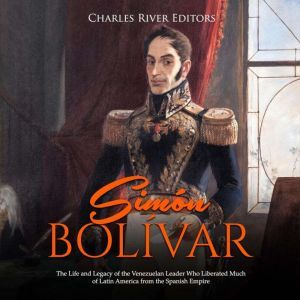

List: $6.95
| Sale: $4.87
Club: $3.47
Simón Bolívar: The Life and Legacy of the Venezuelan Leader Who Liberated Much of Latin America from the Spanish Empire
Author: Charles River Editors
Narrator: Colin Fluxman
Unabridged: 1 hr 53 min
Format: Digital Audiobook Download
Publisher: Charles River Editors
Published: 08/08/2020
Synopsis
Although he is unquestionably one of the most studied leaders of the 19th century, Simón Bolívar remains today as enigmatic as he was two centuries ago, when his vision and presence largely inspired the overthrow of the Spanish Empire in the New World. The legend of Simón Bolívar has a great deal to do with the Siddhartha-like transition of a Creole aristocrat into an impoverished revolutionary; a sparsely educated but pampered aesthete into a premier Enlightenment thinker, and a privileged youth into a warrior of almost mythological prowess. And while all of it, to a greater or lesser extent, is true, Simón Bolívar was also a revolutionary of an atypical variety. The transformational ideals of Simón Bolívar did not always conform to the uncompromising canons of the French Revolution, or the libertarianism and individual freedoms of the American, and nor was he instinctively hostile to the concept of monarchy or aristocracy. His identification with principles of Enlightenment was leavened by exception, and by consideration, and although his military skills have certainly been overstated, they have tended to be judged against the background of Spanish moral and material collapse in the New World. In the end, it is precisely these paradoxes and contradictions that made and still makes Simón Bolívar such an interesting individual. The broad milieu into which he was born was a colonial regime spread across a vast region already many centuries old, well established and with many of the essential social and political structures of the Old World implemented in the New World. Simón Bolívar was an aristocrat, but he was also a “Creole,” which implies that he was not of pure European stock, but of blood mixed over centuries with indigenous people, and sometimes with that of imported African slaves.